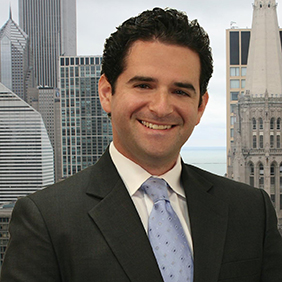- Home »
- Business Bankruptcy »
- Demystifying Administrative Expenses in Bankruptcy

Demystifying Administrative Expenses in Bankruptcy
Priority Claims in Chapter 11 Bankruptcy
Bankruptcy professionals, other business professionals, and trade vendors would be reluctant to provide services or otherwise extend credit on an unsecured basis to an insolvent entity like a bankruptcy debtor unless their payment claims were somehow ensured.
In addressing this predicament, Congress provided that holders of unsecured claims that arise from certain transactions that occur post-petition (that is, after the petition is filed that starts a bankruptcy case) should receive their distribution from the bankruptcy estate ahead of other general unsecured creditors. These are called priority claims, which in chapter 11 bankruptcy are typically administrative expenses. Holders of such claims are entitled to this priority of payments so long as the claim was for goods or services that benefitted the debtor’s estate.
Defining Administrative Expenses
Administrative expenses (sometimes termed administrative claims) are so called because they are based on goods or services that help in the administration of a bankruptcy estate during a bankruptcy case. This article explains what such expenses are and the rules that entitle holders of such claims to be paid ahead of holders of most other kinds of claims.
The Bankruptcy Code defines insolvency as the “financial condition such that the sum of such entity’s debts is greater than all of such entity’s property, at a fair valuation.”1 That condition is typical of bankruptcy debtors, and means that there is not enough value in the debtor’s estate to satisfy all claims. Section 507 of the Bankruptcy Code sets a priority scheme of payment, according to which some claims are paid ahead of others.2 When holders of claims with the same priority are paid from cash that does not suffice to pay all of them in full, such claimants usually become entitled to a pro rata distribution of that cash.
We discuss below, in turn, three categories of administrative claims enumerated in section 503(b) of the Bankruptcy Code:
- Professional expenses of running the bankruptcy case
- Business expenses for debtors operating during the bankruptcy case
- A medley of additional unrelated expenses.
Section 507(a)(2) provides that each of these kinds of administrative claims is entitled to priority of payment over, among other things, the general unsecured pre-petition claims of creditors.
1. Professional Expenses of the Estate
Section 503(b) of the Bankruptcy Code provides that, “[a]fter notice and a hearing, there shall be allowed administrative expenses… including— the actual necessary costs and expenses of preserving the estate including— compensation and reimbursement awarded under section 330(a) of this title.”3 Generally, in order to qualify as “actual and necessary” under section 503(b)(1)(A), a claim against the estate must: (1) have arisen post-petition (2) as a result of actions taken by the trustee (3) that benefitted the estate.4 As a counter-example, where services performed by a professional duplicate services performed by another professional working on the case, the costs of the former are not actual and necessary.5
Bankruptcy professionals that become large administrative claimants can arouse criticism where they got paid in full on their large claims while general unsecured creditors are receiving much less than 100% of the par value of their claims. For example, the administrative expenses of professionals associated with the bankruptcy of Bernard Madoff drew considerable ire from the media.6
However, the expense of retaining bankruptcy professionals often proves essential to maximizing both the return to creditors, and, if applicable, a successful reorganization. In the Madoff bankruptcy, the efforts of such bankruptcy professionals to date have reaped collections of over $14 billion, which promise to support substantial distributions to general unsecured creditors on claims that would have otherwise remained unpaid.
The fees and expenses of professionals retained by non-debtor parties can also qualify as priority claims, such as those of professionals retained by the official committee of unsecured creditors. Additionally, although uncommon in large corporate bankruptcy filings, where a trustee is appointed, the fees and expenses incurred by the trustee and his or her professionals in administering the estate are given administrative priority status and paid accordingly.
2. Business Expenses for Entities Still in Operation
To ensure that employees remain committed to assisting the debtor through liquidation or reorganization, employee compensation is deemed an administrative expense for all services rendered post-petition. Substantial portions of the post-petition claims of lessors of nonresidential real property (to debtor-lessees) receive administrative priority. Although not expressly enumerated under 503(b), post-petition business transactions undertaken at the debtor’s discretion – such as the supply of manufacturing inputs — can receive administrative priority if transacted in the ordinary course of business.
3. Additional Administrative Expenses
The vast majority of administrative expenses are allocated to professional fees or operating costs, which ensure that the debtor’s business operations are not interrupted. In addition, Congress has applied administrative expense priority to other claims in support of various policy initiatives, thereby elevating claims associated with certain taxes, such as property taxes, as well as with certain costs incurred in the filing of an involuntary bankruptcy.
Additionally, section 503(b)(9) provides creditors that shipped goods received by a debtor within 20 days before the petition date with an administrative expense claim for the value of the goods, as long as the goods were sold to the debtor in the ordinary course of business.
Note that subsection 503(b)(9) covers only “goods” and not “services.” This distinction can lead to litigation, as in one case in which the court had to decide whether an electricity reseller provided the debtor with a good or service.7 The court held that electricity is a good, thus allowing the creditor’s administrative expense, reasoning that electricity is a tangible possession, and “[a]lthough perhaps lacking in corporeal shape and not easily observed,” it could be felt, created, measured, and stored.8
We think you’ll also like:
- The Order of Claims in Bankruptcy: Absolute Priority Rule, Structured Dismissals, and More
- Dealing with Corporate Distress 10: All About “Claims” Outside Bankruptcy
- Trade Tip #6: What are §503(b)(9) claims?
- When are Goods ‘Received by the Debtor’ for Purposes of a Section 503(b)(9) Administrative Expense Claim?
[Editors’ Note: To learn more about this and related topics, you may want to attend the following on-demand webinars (which you can watch at your leisure, and each includes a comprehensive customer PowerPoint about the topic):
This is an updated version of an article originally published on January 20, 2020.]
©2024. DailyDACTM, LLC d/b/a/ Financial PoiseTM. This article is subject to the disclaimers found here.
- 11 U.S.C. § 101(32).
- See 11 U.S.C. § 507(a).
- 11 U.S.C. § 503(b)(2) (emphasis added).
- In re Jack/Wade Drilling, Inc., 258 F.3d 385, 387 (5th Cir. 2001).
- See In re Essential Therapeutics, Inc., 308 B.R. 170, 175 (Bankr. D. Del. 2004).
- See In re Bernard L. Madoff, (Bankr. S.D.N.Y. 09-11893-brl); Andrew R. Sorkin, “Madoff Case is Paying Off for Trustee ($850 an Hour),” New York Times, May 28, 2012.
- In re Erving Indus., Inc., 432 B.R. 354 (Bankr. D. Mass. 2010).
- Id. at 369.
About Michael A. Brandess
Michael A. Brandess, a partner at Husch Blackwell and part of the Bankruptcy, Reorganization and Creditors’ Rights practice group, is consistently recognized for his dedicated and zealous representation of his clients, finding the most efficient and creative solutions, securing his clientele the most value for their claims. Michael’s practice focuses on the representation of asset…

Related Articles
90 Second Lesson: Carve-Outs for Unsecured Creditors
Who Gets Paid First (and Second, Third, etc.) in Bankruptcy
Filing and Amending Claims in a Bankruptcy Case
Dealing with Corporate Distress 02: These Are the People in Our Neighborhood: An Overview of Parties in Chapter 11
Opportunities in Bankruptcy: Turning Coal Into Diamonds
Unsecured Creditors Prevail Against the UCC-1
Session expired
Please log in again. The login page will open in a new tab. After logging in you can close it and return to this page.
